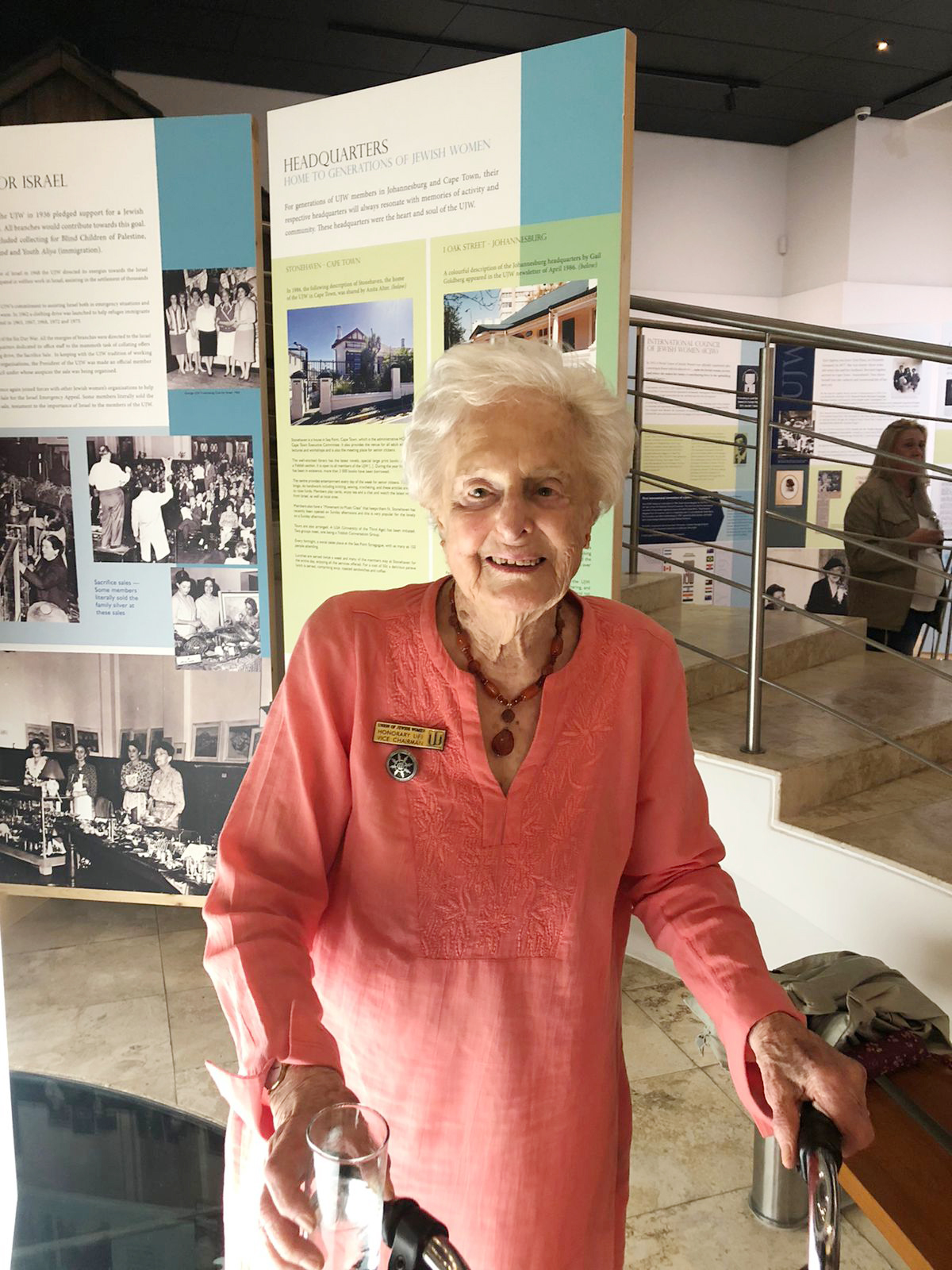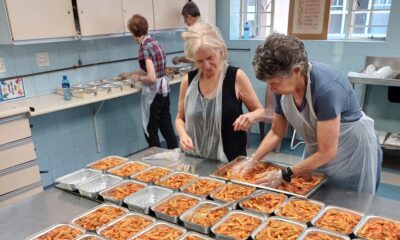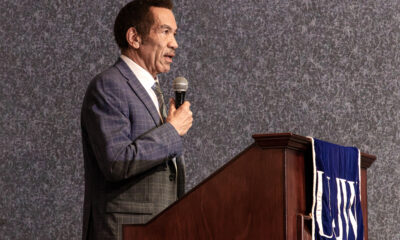
Community

Women work wonders – exhibition charts history of UJW
They say that behind every great man is a great woman, but over the past 90 years, the Union of Jewish Woman (UJW) has turned this adage on its head, as epitomised by a new exhibition at the South African Jewish Museum titled Women of Action: A History of the Union of Jewish Women, which opened on Thursday, 23 March 2023.
“The breadth and depth of the work that these committed women did and still do over generations is jaw-dropping,” said exhibition researcher and Cape Town UJW Chairperson Karen Kallmann at the opening. “In every town and hamlet that Jews made their homes, these women made a difference. They built Jewish communities from the bottom up, ensuring that the vulnerable were taken care of. And what really distinguished the UJW was the extent of its outreach work in the broader community.”
It’s a mission that UJW National President Bev Goldman said had been passed down through the generations. “I stand here tonight representing the many hundreds of extraordinary women, members, and volunteers dating back to Toni Saphra, who emigrated to South Africa from Germany in 1900 and in 1932, founded the first branch of the UJW in Cape Town.”
Kallmann said the UJW saw its work as a vital act of citizenship, referred to the words of Sonia Jacobs in 1949, “We say quite plainly that where we make our permanent home and our living, where we bring up and educate our children, where we subscribe to the laws and obligations of the country and receive the rights and advantages of citizenship, there we have to honour our obligations as citizens, at the same time reserving our Jewish identity, religion, and way of life. Only on that basis are we entitled to demand and receive equal rights, according to law and without discrimination with every other citizen in the territory.”
While these women raised children, were dedicated wives, built Jewish homes, and strengthened Jewish communal institutions, they also doggedly worked to bring “relief, succour, assistance, education, empowerment, entertainment, and much more to hundreds of South Africans of all beliefs and races, in both urban and rural areas, wherever the need was greatest”, said Goldman.
This was especially challenging in the apartheid era, but with stubborn strength and guided by Jewish values, they persisted. Working out of the limelight, they found ways of reaching the most vulnerable across colour lines.
At times, their work was shut down by the apartheid authorities. For example, the government refused to grant a multiracial permit for the UJW’s annual orphans’ concert in 1966. This concert had been held in the Cape Town City Hall since 1944, when UJW member Miriam Bloomberg, the wife of then mayor Abe Bloomberg, organised the first concert for 1 500 underprivileged and physically challenged children.
In 1965, the concert was allowed to take place only after a last-minute compromise: the audience had to be racially segregated. UJW members weren’t allowed to distribute refreshments to children who weren’t white – ironically, those who needed sustenance the most. The next year, the government refused outright for the concert to be held.
In spite of this blow, the UJW found other ways to reach the children who needed it. It instituted early childhood education centres and crèches, and an early school leavers club for teens who had to drop out of school. It also helped teachers and parents upgrade their skills.
Hospital visits were undertaken by every UJW branch from the 1940s to at least the 1980s, to both Jewish and non-Jewish patients of all races. UJW also took an active role in patient care. For example, in 1978, the UJW offered an eight-week training course for volunteers at Johannesburg Hospital. Branches also set up feeding schemes at hospitals.
The UJW also made sure that the elderly, infirm, and mentally ill within the Jewish community were well looked after, visiting patients at general and psychiatric hospitals.
Supporting people living with disabilities has always been a key part of the UJW’s work. In addition, feeding programmes were conducted across the length and breadth of the country.
As the HIV/Aids pandemic swept like wildfire across the country, the UJW was there, caring for AIDS orphans, assisting the health department with ongoing training for doctors and nurses in anti-retroviral rollout, counselling AIDS patients, and educating young people.
Empowering women has always core to the UJW’s mission. Training women in life skills, working with female prisoners, counselling, and training unemployed women were just some of these initiatives. In more recent years, Mama Flo was founded to find sustainable solutions to “period poverty”.
The scourge of gender-based violence continues to be tackled head on by the UJW, especially supporting rape victims, including children, as they navigate the court system or endure hours at police stations.
The UJW has always championed women’s rights, including the right of Jewish women to obtain a Jewish divorce. It also supported refugees, particularly the 1 580 Jewish refugees detained in Mauritius in the 1940s.
A little-known project of the UJW is its support for Jewish conscripts called up to the South African Defence Force. Throughout the 1970s and 1980s, the UJW provided Pesach and Rosh Hashanah parcels and Shabbat dinners for “the boys on the border”.
The UJW supports Israel through various initiatives. Especially in moments of crisis, the UJW has directed donations of clothing and funding to the Jewish state. The organisation worked closely with the Hebrew University of Jerusalem, building the first hostel for female students, establishing a laboratory, and setting up a bursary fund for students disabled in the Yom Kippur War. The Hebrew University awarded its prestigious Torch of Learning Award to the UJW in 1975 – the first time the award was given to a South African recipient.
The UJW has long provided adult education for the Jewish community, and is even known for launching the career of the late Barry Ronge. He was so popular as a speaker, that word spread and he was soon headhunted to write a regular column in the Sunday Times and to speak in a radio slot.
The vast history and massive impact of the organisation is captured in this inspiring and uplifting exhibition, which is also a “call to action” for Jewish women to continue the trail blazed by previous generations.










